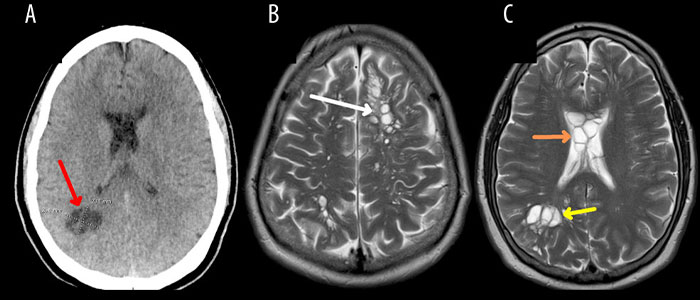
Man’s Habit Of Eating “Lightly Cooked” Bacon Likely Led To Tapeworm Infection, Doctors Say
A Florida man who experienced severe migraines on a weekly basis for a period of four months was found to have a parasitic infection in his brain. He explained that his migraines were very painful and were not responding to medications, according to the case report, which was published in the American Journal of Case Reports.
Florida health officials stated that the 52-year-old patient denied visiting high-risk travel areas, with his only notable travel history being a trip to the Bahamas two years prior.
- A Florida man's weekly severe migraines were found to be caused by a parasitic brain infection.
- The infection, neurocysticercosis, was linked to his consumption of undercooked bacon.
- This case is rare in the U.S., where infected pork is historically unusual.
It was when the unidentified man was asked about his diet that doctors were able to get a better understanding of the situation.
A Florida man contracted neurocysticercosis, a parasitic infection of the brain, after eating undercooked bacon

Image credits: Pexels/ Polina Tankilevitch
The patient claimed to consume a regular diet, but he acknowledged a habit of eating lightly cooked, non-crispy bacon for most of his life.
Doctors eventually diagnosed him with neurocysticercosis, which is a condition caused by an infection from a pork tapeworm.
“It is very rare for patients to contract neurocysticercosis outside of classic exposures or travel, and such cases in the United States were thought to be nonexistent,” the report reads.
The study states that undercooked pork consumption is a theoretical risk factor for neurocysticercosis and that “it is historically very unusual to encounter infected pork in the United States.”
“It is very rare for patients to contract neurocysticercosis outside of classic exposures or travel, and such cases in the United States were thought to be nonexistent,” the report reads
Image credits: Tima Miroshnichenko
Neurocysticercosis is the most common parasitic infection of the brain and a leading cause of epilepsy in the developing world, especially in Latin America, India, Africa, and China, according to the National Library of Medicine.
People become infected by consuming undercooked food—particularly pork—water contaminated with tapeworm eggs, or through poor hygiene practices, the World Health Organization (WHO) explains.
The report notes that neurocysticercosis “is virtually nonexistent” in areas of the world that have banned pork consumption, which highlights the strong link between swine and this disease.
Doctors concluded that the 52-year-old likely contracted the parasite via “autoinfection.”
He may have gotten an intestinal tapeworm—called taeniasis—from eating undercooked bacon that had larval cysts in it and then, after improper handwashing, eaten the tapeworm eggs that he had excreted in feces, leading to neurocysticercosis.
Neurocysticercosis is a leading cause of epilepsy in the developing world
Image credits: amjcaserep.com
“It can only be speculated, but given our patient’s predilection for undercooked pork and benign exposure history, we favor that his cysticercosis was transmitted via autoinfection after improper handwashing after he had contracted taeniasis himself from his eating habits,” the report reads.
The patient was treated with antiparasitic and anti-inflammatory medications, but the report does not mention whether his symptoms subsided after treatment.
The most common symptoms of neurocysticercosis are seizures and headaches.
However, patients may also experience confusion, lack of attention to people and surroundings, difficulty with balance, or excess fluid around the brain (called hydrocephalus), according to the US Centers for Disease Control and Prevention (CDC).
Treatment for the infection varies and may include antiepileptic medications to prevent seizures, antiparasitic medications, and surgery to remove cysts or to put in a tube (shunt) to redirect the fluid in the patient’s brain.

 Dark Mode
Dark Mode 

 No fees, cancel anytime
No fees, cancel anytime 
























































42
12